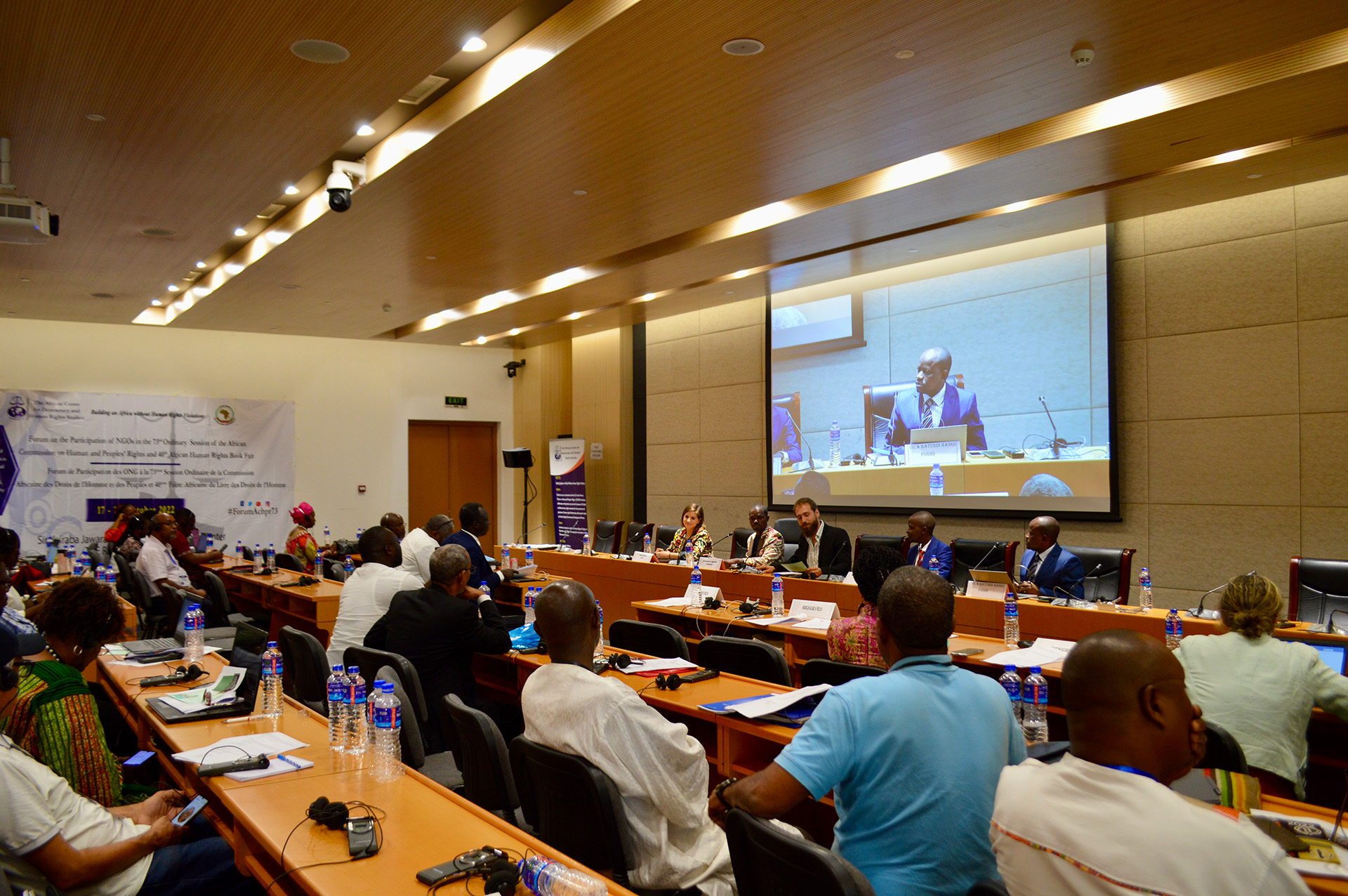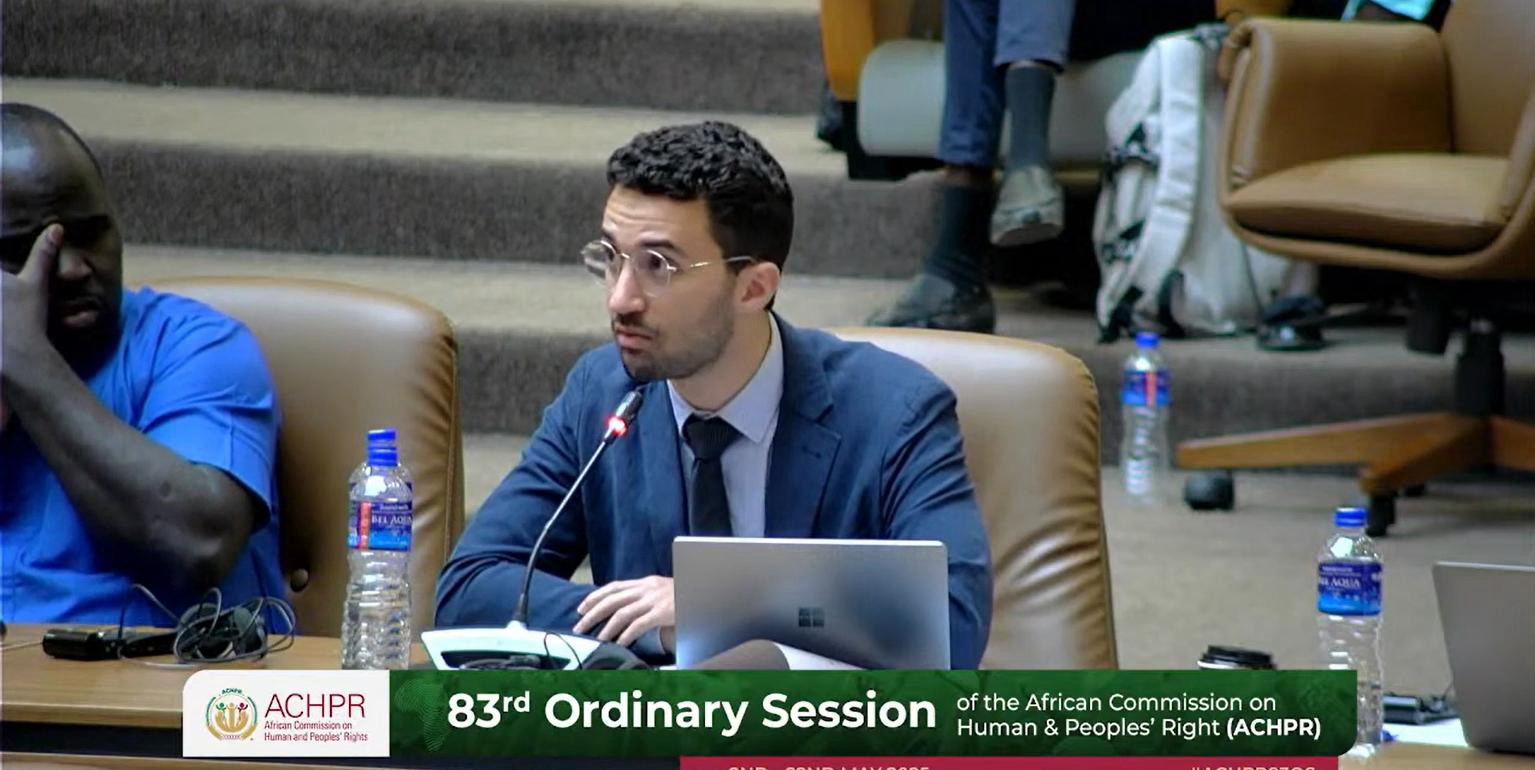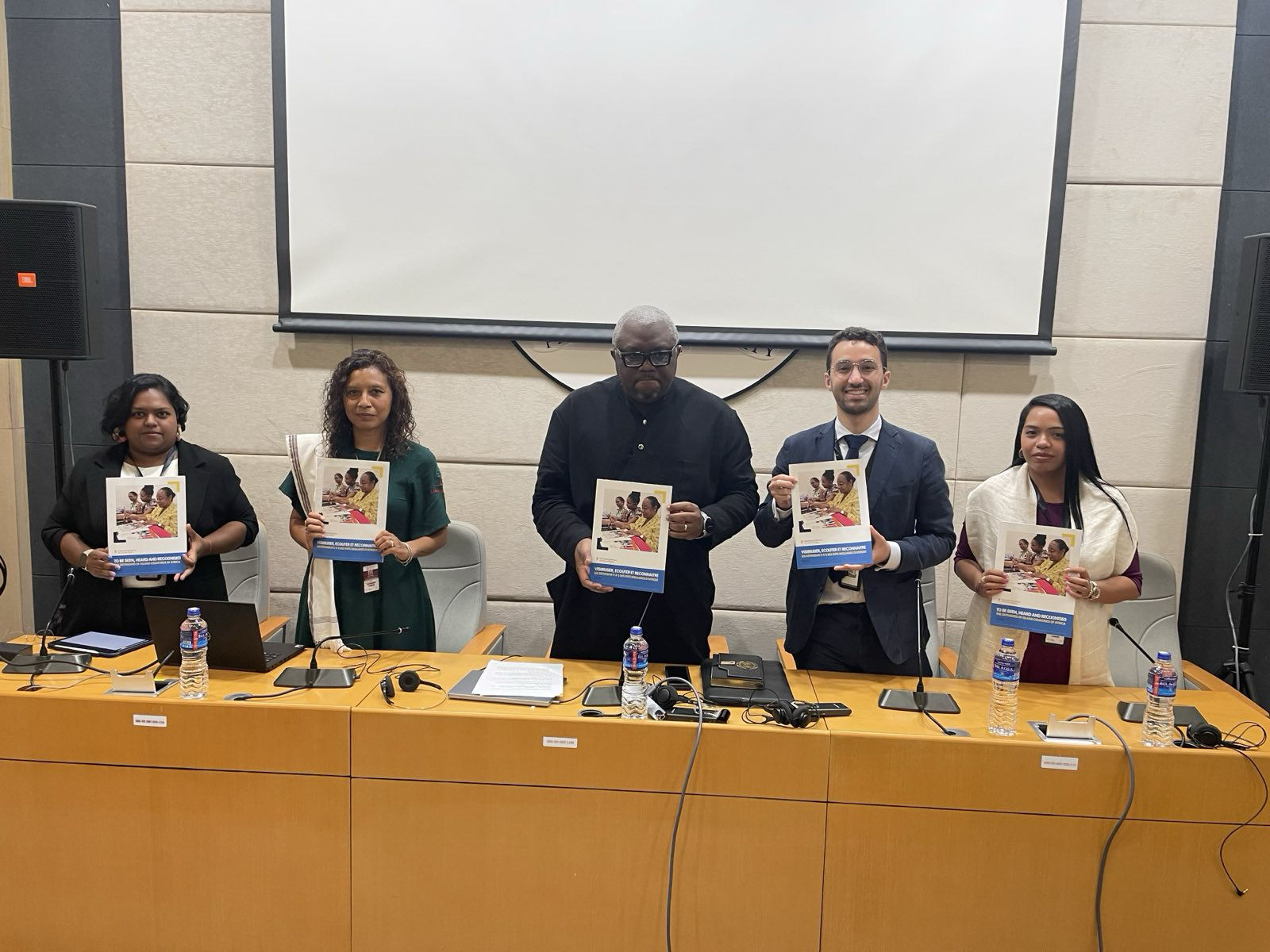On 18 October, civil society speakers joined a panel to discuss measures taken by African states facing major crises and how their reactions to these negatively impacted civic space, including limiting press freedom and stifling citizen’s efforts to hold their governments to account and initiatives to tackle gender-based violence.
Speakers included journalist Rodrigue Ahégo – whose bimonthly newspaper Panorama was banned in Togo in 2020 -, Flora Stevens, Protection officer for the organisation Agir Ensemble Pour Les Droits Humains, and Bahati Rubango, who works to support human rights defenders for the DR Congo-based organisation SOS IJM.
Panellists looked at fragile States which, as a result of difficulties in governance or through ineffective laws, struggle to cope with and support their populations through situations such as war or a pandemic and which instead restrict civic space during crises. They focused on four examples: Togo, Niger, South Sudan and the Democratic Republic of the Congo.
Freedom of expression in peril in Togo
Looking at Togo, Rodrigue Ahégo said his country had set a series of negative benchmarks in West Africa, establishing models for military, constitutional and electoral coups. He traced back his country’s struggles with governance back to a military coup in 1963, the first in the region since countries there gained their independence. This led to the 38-year rule of Gnassingbé Eyadéma, who died in power in 2005 and was succeeded by his son, Faure Gnassingbé, who himself subverted the constitutional line of succession to become head of State and, as his father did before him, has kept himself in place ever since through manipulated elections.
Under the rule of the Gnassingbé family, Ahégo said, Togo has put freedom of expression in peril and it has codified restrictions in law. Some of these restrictive laws and decrees include Togo’s press code, which bans journalists’ use of social media and includes press and opinion-related offences, a law on cybercrime that has been used to silence critics and journalists, and a law on internal security that allows for arrests without warrants and the confiscations of personal belongings like phones and computers.
Niger and South Sudan: national laws undermining international standards
According to Flora Stevens, Niger and South Sudan have adopted laws that restrict fundamental freedoms regardless of the fact that they clash with their Constitutions and international obligations.
In Niger, authorities almost systematically ban protests and pass laws that restrict the work of independent organisations and journalists. Stevens cited a decree passed in February 2022 that restricts the establishment, operations and financing of non-governmental organisations, forcing NGOs to seek authorisations when raising funds and to align their activities with government priorities. This allows the government of Niger to stifle all initiatives it believes to be going against its interests, such as civil society campaigns aimed at fighting corruption.
In South Sudan, Stevens mentioned the absence of a strong and operational mechanism to protect fundamental rights and freedoms as a major threat for human rights defenders. The security situation in the country remains of serious concern, she said, as it is marked by the arrests of members of media outlets and civil society organisations and the raiding of their offices, as well as arbitrary bans on public demonstrations.
DR Congo: peace is yet to come for Congolese women
Bahati Rubango discussed gender-based and sexual violence in the Democratic Republic of the Congo, which he called the “world capital of rape”. The Congo, he said, is marked by the actions of armed groups whose actions have had an impact on everyone, but particularly on women.
These groups are made up of both local militias and foreign groups seeking to establish themselves in or near border regions. Along with the Congolese military, another important military player lies with the troops of the United Nations Organization Stabilization Mission in the Democratic Republic of the Congo (MONUSCO), the longest-serving UN peacekeeping force, which has been active since 1999.
Despite numerous and long-lasting attempts at fostering dialogue, conflict has persisted, exposing civilians, and particularly women and children, to serious violations of human rights including, as noted in a 2010 UN report, the ‘apparent systematic use of rape and sexual assault allegedly by all combatant forces’.
Rubango called for an end to impunity for sexual and gender-based violence, urging that the country implement an effective transitional justice mechanism that would help victims gain access to truth and justice and bring about much-needed institutional reform.
Download as PDF




